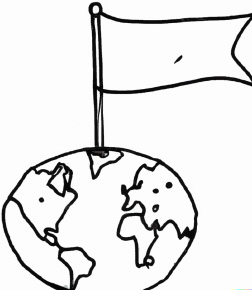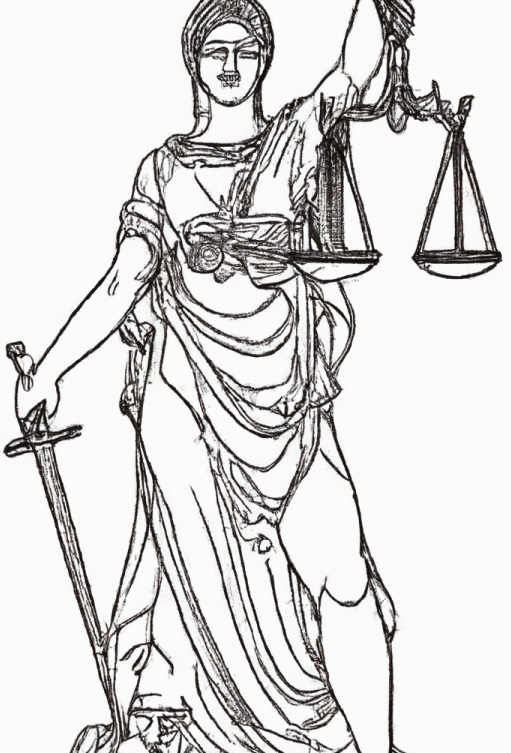


|
||
|
||
Governance, The Digital Domain on its way to Statehood, A Bill of Digital Rights and Responsibilities—Co-authored by Prof. Sam Lanfranco, Klaus Stoll and Sarah Deutsch
The digital domain encompasses the different spaces and spheres we use to relate and interact with the people and things that surround us using digital technologies. The Universal Declaration of Human Rights, UDHR, as the globally accepted standard, should serve us as the guiding light when it comes to striking the delicate balance between our rights and responsibilities on and off-line. The primer scope with broad brushstrokes to the relationship between human rights and the digital domain. The hope is to create awareness and spark a broad discussion on how to extend our fundamental human rights into the digital domain.
(Part 1, covering Introduction, The digital Domain and Human Rights, Our digital Identity, Integrity and Dignity, Access, Rights and Duties.
Part 2, covering Rights and Duties, Digital Citizenship, Residency, Political Crime, Asylum, Digital Slavery/Servitude.)

Freedom and equality, dignity, and rights are separate fundamental human values that cannot be separated. Equally, our physical and digital identities, our residence in a country, nation and cyberspace, and our dual citizenships, are separate but cannot be separated. They are interdependent and constantly exert influence on each other. The freedom and equality, dignity and rights, and the resulting instruments that a literal person enjoys have parallel existence for one’s digital identities. The governance around the parallel existence of digital identities is as of yet underdeveloped, and the challenge before us today.
Article 28: Everyone is entitled to a social and international order in which the rights and freedoms set forth in this Declaration can be fully realized.
Article 28 of the UDHR is aspirational and calls for a social and international order in which the rights and freedoms outlined in the UDHR can be realized. The same can be said for the digital rights and responsibilities of digital citizenship and the governance of the digital domain.
Citizenship requires a state or country. A state or country requires governance. Digital citizenship presumes the statehood of the digital domain and the need for its governance. The question here is if this presumption is valid.

The UDHR uses the terms country, nation and state repeatedly and we need to review their roles and definitions before we can proceed to apply them to the Digital domain.
A country is commonly understood as a defined and recognized geographic territory inside which people live according to a legally binding sets of rules that are set by its own governance processes.
A nation may exist within or across geographic boundaries. It may be defined as a community of people based on political, economic, geographic, ethnic, religious, and other factors. The term nation often refers to a country, but not always. The important difference between a country and a nation is that a nation may not have its own governing power and sovereignty. Intellectual discoveries and technological advances are the driving factors for social change. If the opportunities to use them to enhance safety and security are perceived as significant enough, they result in changes of the social order. The opportunities are often perceived as disruptive and revolutionary (for example, we are talking about the “industrial revolution”), but they give rise to the birth of new nations. The revolution can either be violent or nonviolent, but it never results in stasis. These “revolutions” allow people to disrupt the old in order to create a new state that is projected to be more effective in securing security and prosperity.
A state is a political entity represented by a centralized government that has sovereignty over a geographic area. Membership in the UN is seen as a recognition of sovereignty and statehood. Although the UN is a union of nations, it emphasizes, rights or wrongly, that it is people-centered and sees its role as the representative of the interests of the people that are subject to governance, and not of governments themselves.
The UDHR envisions the country, nation and state as the appropriate vehicle for protecting the will of its people, for promoting the best possible social order to serve the needs and rights of the people according to the principles of the UDHR. Digital technologies and the digital domain, with their promise of exponentially increased security and prosperity, are dramatic disrupters by introducing a technology that transcended and redefined many of the defining factors of an existing country, nation or state.
Within the digital domain, we are living in technological and social constructs and virtual territories. These were initially the websites we visit and the social platforms (email, social media) we use. Increasingly, they now include the growing universe of the Internet of Things (IoT) with its immense tracking and data archiving. Each of those online spaces could be compared to nations in terms of their process and data control. Many digital tech companies and their high-level representatives act in their relationship with states as if they are nations in their own right. Like nations in the real world, digital territories are influenced and defined by political, economic, geographic, ethnic, religious, and language factors.
Approaches to sovereignty in cyberspace go back as far as 1996 when John Perry Barlow published his “Declaration of the Independence of Cyberspace.” “We will create a civilization of the Mind in Cyberspace. May it be more humane and fairer than the world your governments have made before.”
Digital technologies, with their global reach, are transcending and redefining many of the factors of what constitutes a country, nation or state. They are also propagating change in ways that often stand in direct challenge to old perceived values, including those of the UDHR. For example, one’s personal presence in digital cyberspace may be entitled to few or no rights to one’s personal data, if data users ignore UDHR privacy rights based on notions of “unregulated digital innovation.”
The globally expanding scope of the digital domain and cheaper and easier access have given billions of persons a digital residence in the cyberspaces of the Digital domain. Click by click, soundbite-by-soundbite, and frame-by-frame, digital human communities are forming, and the notion of an increasingly powerful multifaceted global “cybernation” is created in parallel with it.
The emerging cybernation is acquiring the properties of a physical nation, as a diverse community, both within nation-states and at the global level. Within nation-states, cybernations can be subjected to state governance, as in the case of the General Data Protection Regulation, GDPR, within the states of the European Community. The GDPR also applies outside typical borders to EU Citizens who may live outside the EU. GDPR’s broad regulatory language is not only affecting privacy rights in the EU but having an extra-territorial effect. Lacking an effective global system of governance, cyberspace is still in search of its ‘statehood.’
Global cyberspace cannot yet claim to have the status of a sovereign state. It still lacks a governance structure and rubric for determining how citizens, entities, and governments participate in multi-stakeholder or multilateral governance structures. The realms of cyberspace need rules and regulations that govern the processes and balance the rights of the individual against those of the community, and vice versa. All citizens in the physical world are entitled to a social, and likewise, digital citizens are equally entitled to some form of suitable and accountable global Internet governance. We need to build equivalent digital governance structures that are accountable to the will of all global stakeholders, whether they be persons, entities or states.
Once Internet Governance has become mature in its role as a venue for global expressions of “the will of [all] the people,” stakeholder engagement will require policies around the rights and duties of digital citizenship, nation by nation. Given the unique nature of the Digital domain, there will be a need to address the notion of digital citizenship at the global level.
A just state is built by the political will and engagement of its citizens. Constructing the layers of the cyberstate, from local to global, will require shared aspirational goals and vision across its citizenship. It will require the formulation of a digital bill of rights, and the formation of a democratic governance structure for the digital domain, whose constitution needs to be fully informed by the UDHR.

The term Internet governance is commonly used to describe governance of the digital domain. As the Internet is only a part of the digital domain, there is a danger that the term Internet governance limits the importance and scope of governance in the digital domain. The term Internet Governance should be replaced by the more accurate “governance of the digital domain” and the shorter but more ambiguous term “digital governance.”
Governance, in the form of authoritative policy-making processes and resulting laws and regulations, are in their infancy in cyberspace. The existing vacuum is filled by government efforts to exercise a perceived sovereignty over citizen “citizenship” in cyberspace. Part of the argument is that citizens need protection from harm, and part is in support of third parties’ digital business strategies. There are conflicting pressures there. Also, the sovereignty of state is limited to their authority over citizens within the context of the state. People now have a second larger form of citizenship in global cyberspace. Laws and regulations that do not recognize the dual nature of digital citizenship are, at best, an incomplete effort to regulate and protect the rights and duties of one’s digital citizenship. In addition to the articulation of proper domestic digital citizenship policies, it is impossible to overestimate the need and urgency for progress on Internet governance at the level of the global Digital domain.
Different circumstances call for different behaviors. At the start of digital unbridled innovation and expansion. Only a few were connected, and most of those shared responsibility for the network. Accountability by honor system and peer pressure. Now that the networks of networks affect so profoundly our lives, it is time to regulate.
Governments, as representatives of their citizens, participate in digital governance and policy-making processes through international law and treaties and play a major role in establishing a governance structure on the basis of joint sovereignty of humankind over digital domain and its technologies.
As long as digital domain is without just and effective governance mechanisms, it falls to the state is to protect the rights of its citizens, including their rights as digital citizens.
National governments have been slow to understand the policy issues within the Digital domain. In an era where neoliberal values still dominate, much of the policy that would shape Internet governance remains stillborn.
States are in the process of building their policies and regulations for national cyberspace, and for the rights and duties of national citizens and residents, virtual or literal, in national cyberspaces.
The physical nation-states play an ambiguous role when it comes to protecting digital citizenship rights. They are developing policies related to national digital citizenship while trying to extend that control into global cyberspace. Such strategies are bound to experience extreme difficulties in the borderless cyberspace of the Digital domain. These issues become even more challenging when such national policies inevitably clash with each other across jurisdictional boundaries.
So long as states fail to recognize the global borderless nature of cyberspace, their efforts to protect their citizens in global cyberspace will always be inadequate. It will take states entering international treaties that regulate the digital relationships between literal states in order to ensure that the rights of their citizens are respected in borderless cyberspace.
At an individual level, empowered digital citizenship should bring the right to access global cyberspace, the right of protection by the State, and the obligation of the State to engage in multilateral efforts to protect its citizens’ global digital rights. On the other hand, state-level interference with cyberspace, such as network takedowns, constitute an abridgment of principle-based rights of digital citizenship in both national and global cyberspace.
The power of digital Domain Governance bodies, some formulated as “standards bodies”, is based on agreement and compliance evolving from a trade-off analysis by significant players. There are constant attempts to gain more power and to get existing coordinator activities under their control.
Much of the dialogue and discussion is on structures and processes, taking with only weak regard to the rights and duties of one’s digital citizenship or reference to the underlying human rights principles drawn from the UDHR.
Over the years, a growing and increasingly confusing blend of multilateral, intergovernmental, and international initiatives developed to establish policy-making mechanisms for digital domain. Ignoring the special character of digital domain as a common good, their common characteristic is that they are created as instruments to ensure that one group’s specific interests prevail over those of another: profit over privacy; national interests over global brotherhood; short-term political gains over long term common good, the list is as long as there are special interests seeking protection. This exposes the hypocrisy of self-appointed and self-empowered policy-making bodies, as they loudly proclaim the absolute equality of all digital citizens but in practice, are only motivated by preserving their own privileges and powers.
As Internet Governance matures, the major challenge will be to secure the voice and participation in dialogue and policy development for those voices speaking in the public interest and those coming from the Digital domain’s marginalized communities.
The core challenge is: For the global Digital domain, how does the will of the people get formed? How does it get represented in the rules and regulations and within the social norms and structures and processes of Digital domain?
One approach is to shift the central focus from “what should be the government” to “what principles should govern the rights and duties of digital citizenship” and digital citizens’ engagement and the “will of the people” shaping governance. Part of that path would proceed much in the way that the UDHR has focused on human rights at a universal level and as leverage on the behavior of the nation-state.
There are three challenges at play here. One is the absence of a “state system” to house governance, the other is how to engage the “will of the people” in governance processes, and the last is how to do so with trust and integrity.
In governance, that includes agreeing on a charter or constitution and the establishment of governance mechanisms. To a large extent, this process has not occurred around the rights of engagement, the rights and duties of digital residency as digital citizens, and the current stage of Internet governance.
Making the UDHR the foundation of Internet governance is the first step in securing digital rights and obligations in a global Digital domain with integrity. Efforts to create just and authoritative Internet Governance structures can begin with examining the UDHR as a universal and authoritative navigational tool for flagging digital rights and duties and highlighting areas and issues where the Internet’s cyberspace poses challenges. We will need ongoing multilateral dialogue to flesh out the definition of various digital rights and duties and the building of Internet Governance structures.
Efforts to create just and authoritative Internet Governance structures can begin with examining the UDHR as a universal and authoritative navigational tool for flagging digital rights and duties and highlighting areas and issues where the Internet’s cyberspace poses challenges. We will need ongoing multilateral dialogue to flesh out the definition of various digital rights and duties and the building of Internet Governance structures.
Some stakeholders, especially those who rely on digital business practices that exploit data access, oppose using the UDHR as a navigational aid for policies that protect the rights of national digital citizenship. These parties argue that regulations that constrain data use will stifle digital innovation. Some business (and political) interests in cyberspace push for unrestricted digital business practice innovation. Governments, however, are increasingly dismissing arguments for “unregulated innovation” and instead are increasingly turning to over-regulation, with its unintended consequences, as the answer.
We cannot subjugate our freedom of thought to the opinions of others, especially when in uncritical support for technical or social innovation. We cannot bow to a leadership that postulates the superiority of one thought over another, independent of evidence, logic, and morality, or thought that demands acceptance without accountability. Innovation with integrity is hampered by leadership when that leadership seeks to preserve and strengthen special interests, frequently at the expense of human rights and well-being.
A sign of true innovation and leadership with integrity is that it enables and nurtures the processes of free thought, evaluation, dialogue, and consensus. These four steps are integral to the process of sound digital Domain governance policy-making.
What is clear is that the globe is on the cusp of constructing Internet governance at every level and that much of the digital domain is like the earth’s oceans or atmosphere. It transcends national boundaries. While there will be national digital governance, there will have to be global agreement on global digital governance. There is a distinguishing, unique property to the challenge of global governance in the Digital domain. Within the nation-state, persons are citizens of the state and subject to the rights and obligations of that citizenship
Are we on the way to creating new governance models where the very few use digital means (AI) to control the masses, or does the machine take over, and one way or another, we end up under structured (but mindless?) dictatorship? Fundamental decisions, governance structures and processes across a wide range of human activities, including work, are yet to be made. That is where the principles of the UDHR come in to give direction, and that is where IG governance comes in to give everybody a voice in the fundamental decisions of our lives.
Policy making and implementation in responsive and responsible (democratic) governments always reflects a tension between the interests of competing constituencies and involves maneuvers that test the limits of social norms. At the global level, this tension is between national sovereignty and multilateral agreements for a greater common good.
Any global governance structures are likely to be enshrined in international or multilateral treaty agreements, much like the multilateral agreements dealing with oceans and the atmosphere. They are unlikely to come from some sort of overarching cyber state. It is essential for the governance of digital domain that policy-making, and enforcement tools are in place that ensure that global digital citizens are empowered in the policy-making processes, are never deprived of their full rights (and duties) citizenship, and enjoy a safe and secure residence in the digital domains of the internet.
Article 21, Section 3 of the UDHR states that “The will of the people shall be the basis of the authority of government.” For the Digital domain, there is no global governance structure that can be held responsible for establishing and protecting the rights and obligations of global digital citizenship. As long as the digital domain is without just and effective governance mechanisms, it falls to the state to protect the rights of its citizens, including their rights as digital citizens.
The time is ripe for the Internet community to explore the potential application of the UDHR to address key protections for citizens and governance at the level of the global Digital domain.

Digital governance requires shared aspirational goals and vision across digital citizenship.
Once Internet Governance has become mature in its role as a venue for global expressions of “the will of [all] the people,” stakeholder engagement will require policies around the rights and duties of digital citizenship, nation by nation. Given the unique nature of the Digital domain, there will be a need to address the notion of digital citizenship at the global level. The principles of the UDHR will be used to guide structural changes in Internet Governance such that our behavior in the Digital domain will help society achieve a more human-centered approach to social security.
Borrowing from the birth of the United States, when people come to a point where they feel that “We hold these truths to be self-evident” regarding the rights and duties of their digital citizenship, the time will have come to the establishment of an Internet Governance that reflects and protects peoples’ human rights within those digital rights and duties. To reach this stage, stakeholder engagement, dialogue and transparency will be key. The self-evident truths regarding digital citizenship and Internet governance have to do with digital inclusion and joining the virtual to the literal.
The principles in the UDHR constitute the key principles that should be enshrined in a declaration of digital rights, or more properly, the rights of global digital citizenship.
There is a need for a democratic body, whose constitution needs to be based on the digital bill of rights, to exercise the joint sovereignty of all digital citizens.
Part 4 of the Primer to be published in 2 weeks, will continue on the topic of our digital identity and address topics such as: “The Instruments of Governance: Law, Justice and Independent Judiciary, Legislation, Digital Policy making Mechanisms and Tribunals, Multistakeholderism, Commerce”
Sponsored byVerisign

Sponsored byDNIB.com

Sponsored byWhoisXML API

Sponsored byIPv4.Global

Sponsored byCSC

Sponsored byRadix

Sponsored byVerisign
